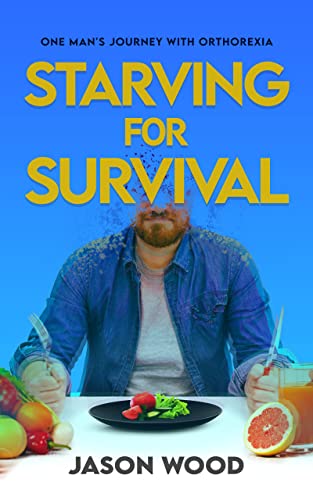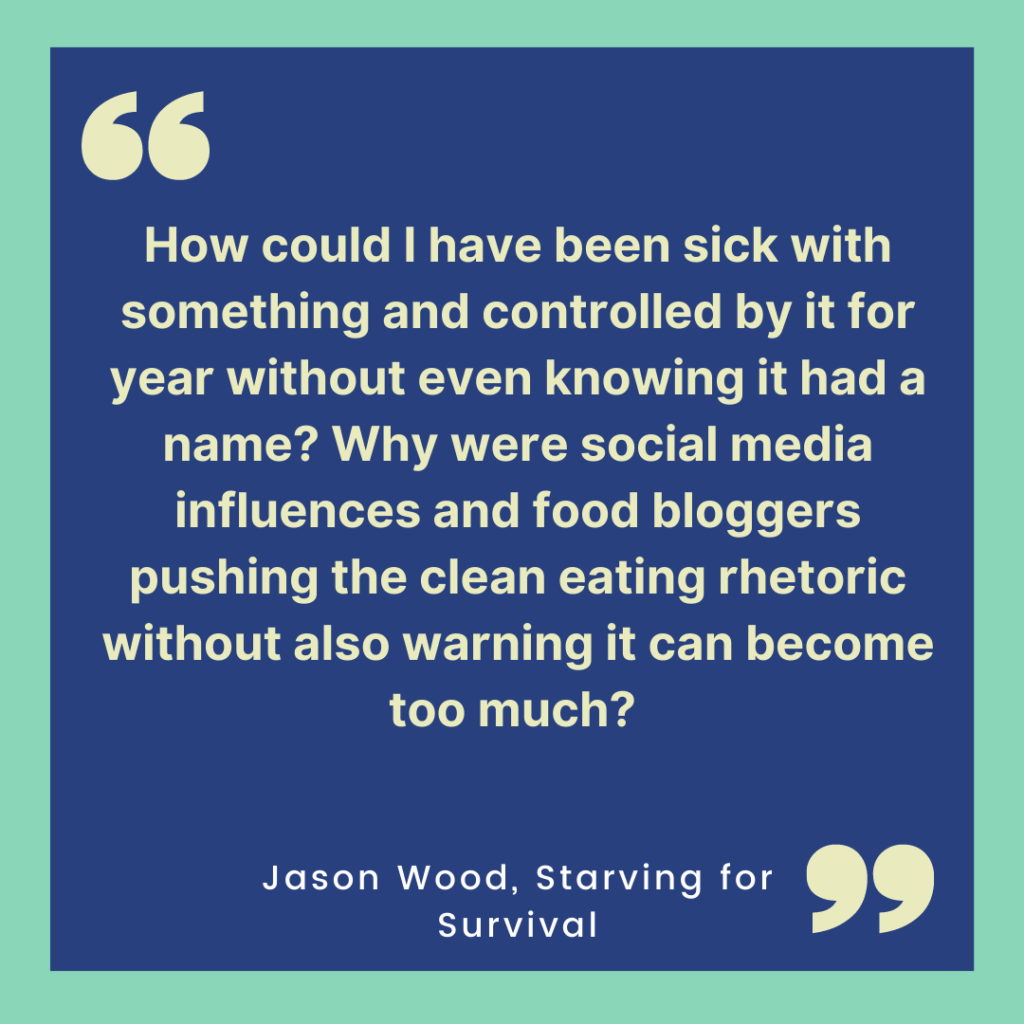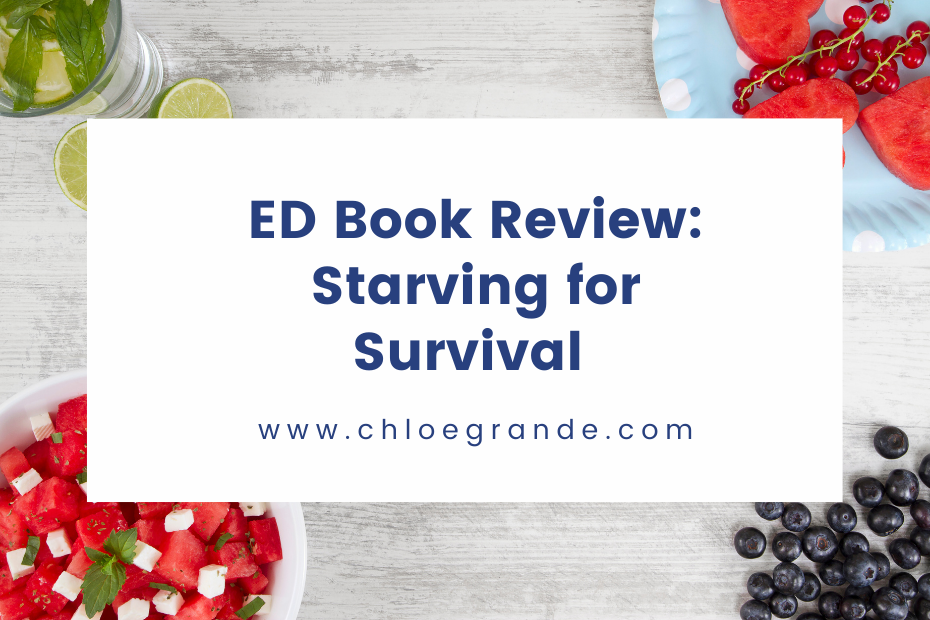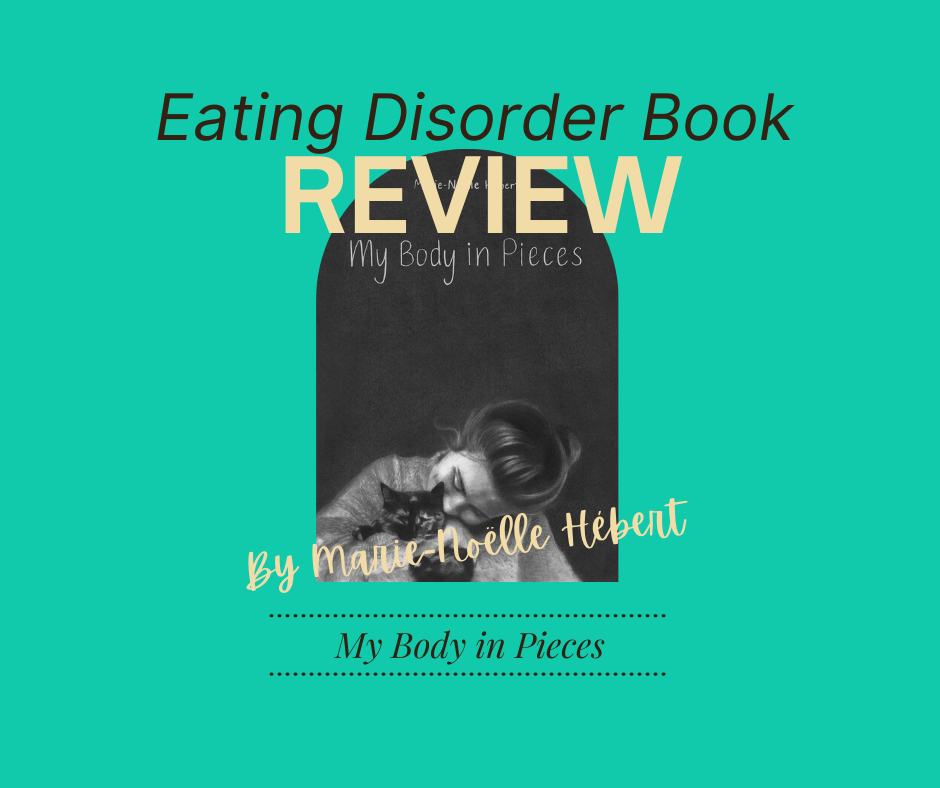Have you heard of orthorexia? In Jason Wood’s memoir Starving for Survival, he describes having to self-diagnose himself with this lesser-known eating disorder after his doctor refers to the condition as “an unspecified eating disorder.”
So is the case for many people with orthorexia nervosa, a less common type of eating disorder marked by “an obsession with proper or ‘healthful’ eating.” If left untreated, their obsession with foods they deem “pure” or “clean” can lead to them to cut out entire groups of food, cause emotional distress, develop malnutrition and have other serious health consequences. Many individuals with orthorexia, including Jason, also have obsessive-compulsive disorder (OCD).
While the illness is not recognized as a formal eating disorder in the Diagnostic and Statistical Manual, some research found that orthorexia affects 1% and 7% of the general population. In Canada, that would be hundreds of thousands of people who struggle with orthorexia.
It’s likely you may know someone who has an unhealthy obsession with eating healthy. (You may even recognize Jason’s name from a resource round-up post, where I included his blog Orthorexia Bites as an essential in advancing the conversation around men’s mental health.)
Even if you aren’t directly impacted by orthorexia, Jason’s book is a must-read for anyone wanting to better understand the connections between body image, masculinity and eating disorders. At every roadblock, whether it’s alcohol abuse, poverty or illness, you’ll find yourself cheering for Jason to succeed — spoiler alert: he does.

My 5 key takeaways from Starving for Survival:
1. The impact of childhood trauma can’t be stressed enough
It’s heartbreaking to see what Jason goes through as a child. From the sudden losses of both parents to being bullied and called names like “Fatty” and “Porkchop” at school, Jason admits that he “never felt man enough.” The stigma surrounding men’s mental health made it harder to recognize something was wrong with his extreme dieting. However, Jason’s ability to overcome these adversities — he’s become a vocal advocate for men’s mental health and a recognizable face of orthorexia awareness — is admirable.
2. There isn’t enough awareness about orthorexia’s life-threatening consequences
Throughout the book, it’s troubling how much Jason’s disordered eating is admired by others. He’s praised for his “willpower” by his friends, who ask for diet tips and want to learn how he shed weight so quickly. Even health professionals compliment his abnormally low heart rate. Plus, social media and diet culture reassure him that eating heathy is good thing, even to the point of eliminating entire food groups for the sake of “health.” So many red flags!
3. The pandemic has exacerbated eating disorders
For Jason, the pandemic brings a new intensity of control around his eating and food choices. These unprecedented times amplify all of his anxiety, OCD and disordered eating thoughts — with food, there was at least one thing within his control. A breakdown at a restaurant, when he couldn’t swap pita bread for veggies, sheds light on how serious the illness had become. He books an appointment with his doctor for the following week, finally getting the help he desperately needs. Jason goes on to launch his Orthorexia Bites blog in early 2021 (coincidentally, the same time I started my blog!).
4. Eating disorders are all-consuming and take away from living your life
Starving for Survival takes us into Jason’s head, home to reoccurring, compulsive thoughts that centre around researching, planning and stressing over every morsel of food. On his first European vacation, Jason finds it nearly impossible to enjoy himself. At a Berlin cafe, he watches with envy as his partner devours a buttery croissant for breakfast. As much as he wants to try one, Jason sticks to his egg whites and fruit bowl. For the book reading at his virtual launch party, Jason picked this passage to highlight: “I still think about that Berlin cafe and how much I wish I had actually ordered what I wanted.”

5. Starving for Survival is a love story
As he recovers from orthorexia, Jason learns the process of genuine self-acceptance. Writing proved to be a therapeutic process, as he was able to see his hardships and struggles from a third-person, objective point of view. He realizes he was doing his best given the circumstances and develops a newfound self-compassion and kindness. As Jason becomes less enamoured by his eating disorder, he falls more deeply in love with Matt (his partner), his own life and, most importantly, himself.
A huge congratulations to Jason for being the first to write a book on orthorexia from a male perspective. His perspective is deeply needed, as Dr. Jason Nagata writes in the foreword: “Jason’s story will be an important step in inspiring others to share their stories, combat stigma, and help to recognize signs and symptoms of eating disorders.”
Starving for Survival has already left a lasting impression on me, one that I hope to share with others. As serious as eating disorders can be, they can be overcome with support, treatment and education. Trust me, I know a guy.




There seems to be a huge amount of content online that caters to and cultivates fear in individuals about “good” and “bad” foods. It’s great to see you combating that narrative! Food should be part of a healthy lifestyle, not all consuming.
Absolutely, you’re completely right! Orthorexia plays so much into that narrative of black-and-white thinking. Good on on you to recognize that food is just a sliver of living a healthy lifestyle 😊
Very sensitive and thoughtful review, Chloë! Definitely opens new horizons for me to consider.
Glad to hear! I think that’s definitely Jason’s goal, to start new conversations around orthorexia in men and offer different perspectives on eating disorders in general. I appreciate the feedback!